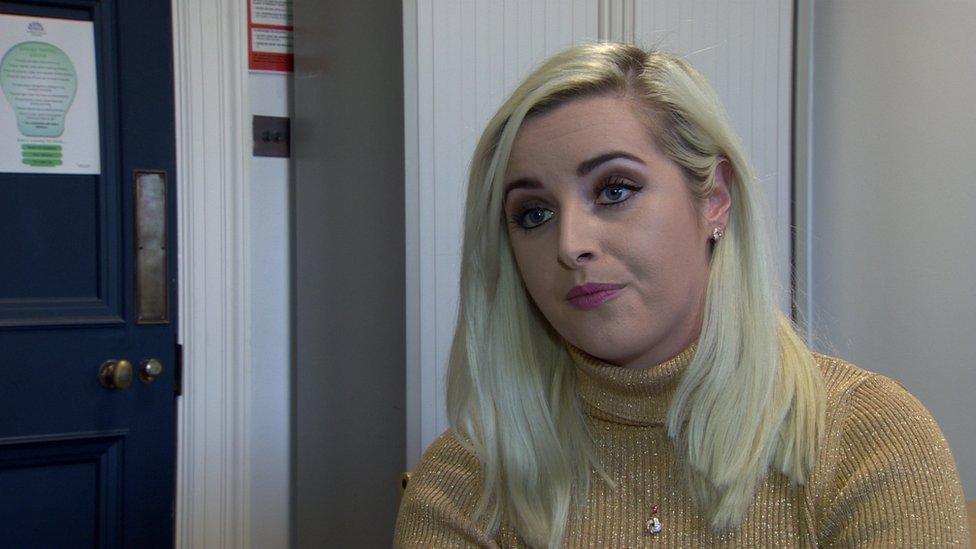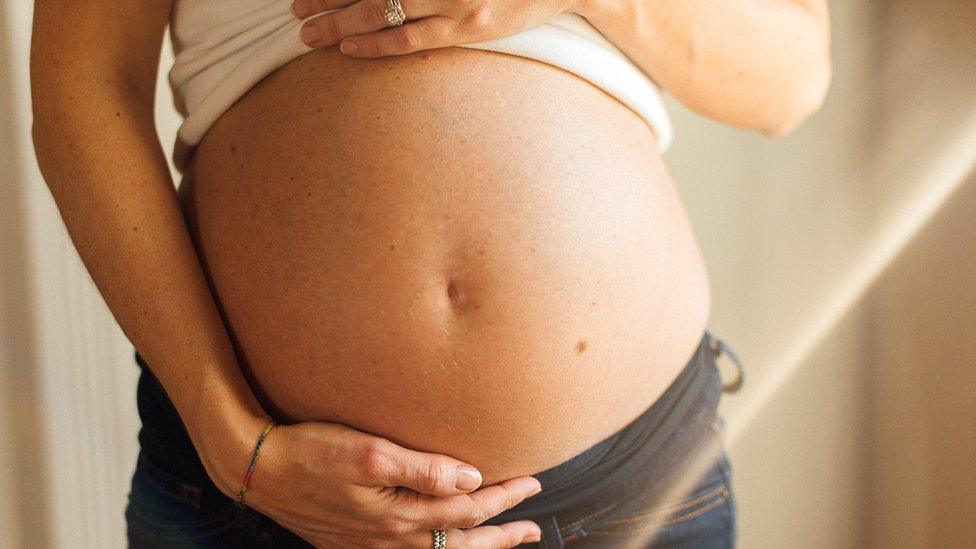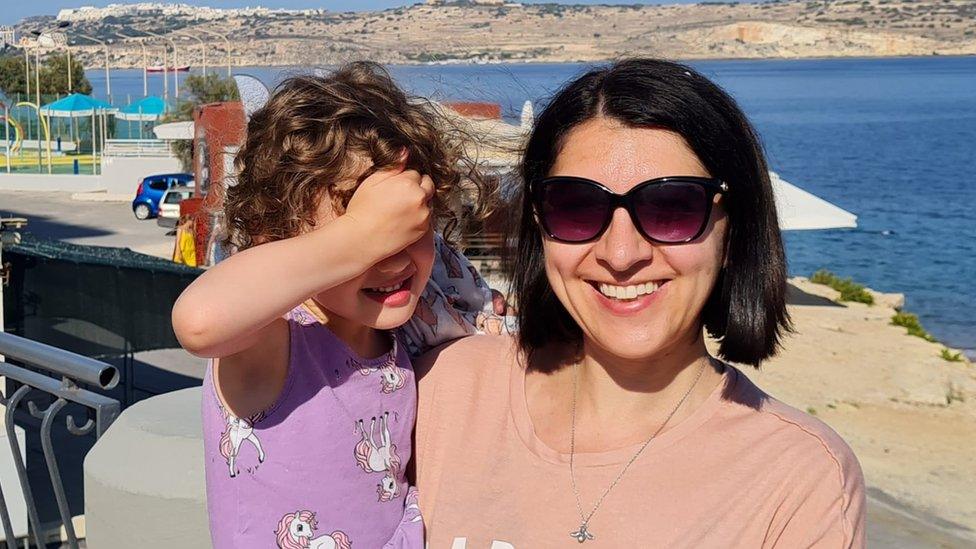IVF: Sinn Féin MLA urges people to talk about infertility
- Published

Órlaithi Flynn urged people not to feel "embarrassed or ashamed" by infertility
A Sinn Féin MLA has shared her own IVF journey in order for infertility to be talked about more openly.
Órlaithí Flynn announced on social media at the weekend that she was pregnant but this had not been easy because of infertility and baby loss.
According to the NHS, about one in seven couples experience difficulties conceiving a child.
The Belfast West assembly member urged people not to feel "embarrassed or ashamed" by infertility.
Ms Flynn said that she had been "nervous" and "uncertain" about going public with her pregnancy.
"Elected representatives across the board when you post things, especially things about your personal life, you always attract and it is a minority, thankfully, some very very negative and nasty comments," she told BBC Radio Ulster's Talkback programme.
"I also didn't want to upset anyone who is at a difficult stage of their own IVF or infertility journey at the minute because I know how low and lonely that can feel."
She told the programme that she decided to share the news to give hope to other couples in a similar situation.
"It's just to say there are so many of us out there. Please don't feel embarrassed or ashamed. It is very easy to feel this way because the issue isn't talked about openly enough," said Ms Flynn.
"I have been through it, I have had my own ups and downs, IVF is a very emotional and unpredictable journey but if you have to go through that journey, hopefully it will be worth it in the end."
Ms Flynn said she first discussed fertility with her GP when she was 29.
'Speak to your GP'
"When you think about issues around fertility and having a baby, a lot of young people growing up, you just assume that it is the most natural thing in the world and that you won't have any issues with it.
"That's what I want to say to people today, no matter what age you are if you are having any concerns speak with your GP at the earliest opportunity."
Following surgery in 2019, Ms Flynn and her partner were first offered IVF treatment in March 2020, but this was cancelled due to the pandemic.
"It was delayed a year and a half, whenever treatment resumed in August 2021 I sadly lost the baby and had a miscarriage. It was actually a sitting day in the assembly," she said.
"It was also baby loss awareness week.
"Thankfully our offer to resume treatment in April 2022 which wasn't ideal mid election campaign but obviously this was an opportunity I couldn't pass up."
She added: "Even this pregnancy was not straight forward.
"On the day of the election count, I actually thought I was losing the baby but thankfully the staff in the regional fertility clinic found a heartbeat a few weeks later."

According to the NHS, about one in seven couples experience difficulties conceiving a child
Ms Flynn described IVF in Northern Ireland as a "postcode lottery".
She said that the New Decade, New Approach agreement, external between the parties, agreed in 2020, had sought to provide three cycles of IVF treatment in Northern Ireland.
Plans to expand the current IVF programme were paused when the Covid-19 pandemic hit.
The Department of Health told BBC News NI it fully appreciates that fertility issues can be an extremely stressful time.
It said increasing access to treatment from one to up to three cycles for those eligible has been a priority for the Health Minister.
'No control'
Dr Tommy Tang, consultant gynaecologist and clinical lead in the Regional Fertility Centre, Belfast, commended Ms Flynn on sharing her story.
He told the programme that one in three couples attending the clinic do so due to male-contributed factors, which he said was another "less talked about" topic.
"About 20% would be unexplained, after all background testing there is no explanation to the couples, it is actually very difficult for them to make an informed choice and mostly they would prefer there is a reason," he said.
Dr Tang said IVF could be emotional for many, and hard for couples as they had "no control" over the outcome.
If you have been affected by any of the issues raised in this article, you can contact the BBC Action Line.
Related topics
- Published16 July 2022

- Published20 July 2022

- Published3 July 2022
